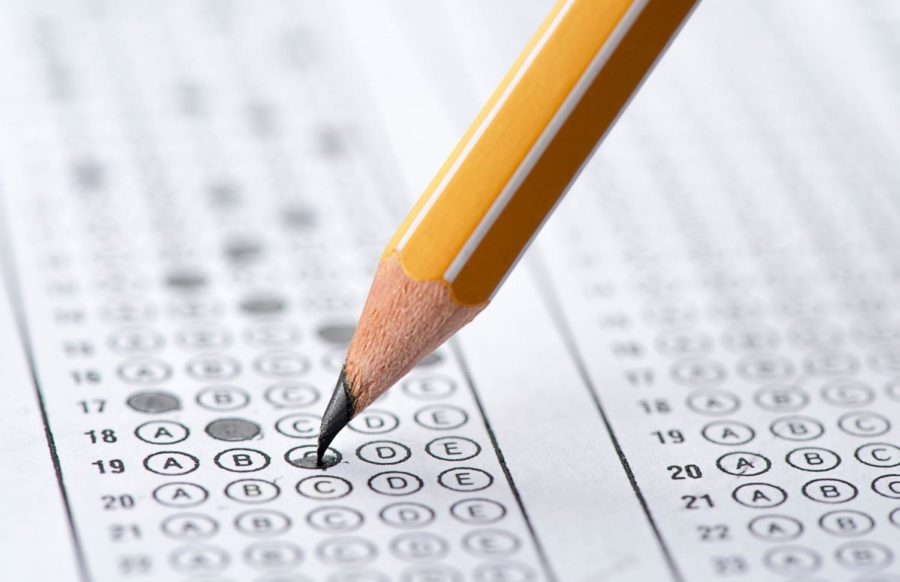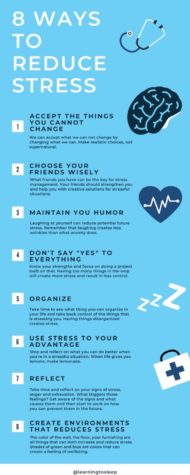Exam season is approaching; the stress is on
With the exam season starting April through May, students are enlisted in taking many finals and exams. However, it is important to recognize the effects of stress this season brings on the students, and taking effective precautions to ease it.
Starting April through May, schools throughout the country enlist their students to take tests, finals, evaluations, and, most popularly- AP exams by College Board.
Nat Malkus, the senior fellow and the deputy director of education policy at the American Enterprise Institute, stated that according to the College Board, college admissions personnel view AP courses as one indicator of future success at the college level. Therefore, participation in AP courses is considered an advantage for students who wish to attend highly selective colleges.
Mental health during exam seasons
Academic anxiety is likely to increase as students get older. Such often is because of pressure, grades, goals, and lastly- the growing abundance of exams.
“It’s normal for your child to feel worried about exams, especially if they feel under pressure from school or family,” Stevie Goulding, parent helpline manager at YoungMinds said.
Anxiety can cause blanking or temporary memory losses before stressful events such as academic exams. Signs of academic stress can sometimes be challenging to identify. Still, when students are not sleeping or eating properly, becoming obsessed with their work method, or complaining about physical health problems (e.g., stomach aches, headaches etc.), precautions should be taken.
However, with constant academic pressure, perfectionism plays a significant role. Perfectionism describes the tendency to set unrealistically high-performance standards, along with the inability to accept mistakes in matters of personal appearance or work; it may be accompanied by an obsession with completeness, purity, or goodness. Perfectionists also pay selective attention to their own achievements, criticizing themselves for mistakes or failures and downplaying their successes. Overwhelmed by anxiety about their future performance, students are often unable to enjoy present achievements.
Karen D. Rudolph, professor at the Beckman Institute for Advanced Science and Technology
Affiliate, Center for Social and Behavioral Science Depression has been linked to a range of adverse school-related outcomes, including poor grades, a lack of persistence in the face of academic challenges, and decreased classroom participation due to stress concerning perfectionism. These effects may range from short-term declines in academic performance to long-term problematic school outcomes.
A 2019 review study summarizes this information, showing that academic pressure is associated with the following mental health symptoms: Anxiety. Depression. Low self-esteem.
“These past few months have been very stressful, and mental-health-wise it has gotten a lot worse. I feel like all I am doing is revising and studying and have no social life. And all of the extra work and assignments teachers have been giving us really do make my anxiety worse, as I see all of the information I still need to refresh,” sophomore Ahn Le, who takes four AP classes said.
Physiological effects of stress on the teenage body
As empathized, the academic stress that the exam season brings can negatively affect students’ mental health. However, many are unaware of the physical effects of the constant worry and anxiety that this season brings.
Aside from staying up all hours revising, the added stress and anxiety of exams can make young people feel tired and grumpy – and even potentially cause sleeping problems and insomnia, separately from stress triggering and intensifying headaches.
Exam stress might make teenagers lose their appetite, or even lead to overeating or undereating. Additionally, students might make poorer food decisions by having “no energy” to make something healthy, or due to stress-eating.
Stress and strong emotions can present with respiratory symptoms, such as shortness of breath and rapid breathing, as the airway between the nose and the lungs constricts.
Stress can cause one’s liver to release extra sugar (glucose) into your bloodstream which can put the student with time at a risk for type 2 diabetes. Additionally, as stress hormones tighten blood vessels, that can raise one’s blood sugar.
Acute stress—stress that is momentary or short-term such as meeting deadlines, seeing the countdown to an important date, or suddenly slamming on the brakes to avoid an accident—causes an increase in heart rate and stronger contractions of the heart muscle, with the stress hormones—adrenaline, noradrenaline, and cortisol—acting as messengers for these effects. This can cause a feeling of having a heart attack in students.
Stress affects your body’s digestive system which can lead to stomachaches, nausea, and other digestive system problems.
How to minimize stress during exam season
As previously mentioned, exam stress and anxiety affect both- one’s mental and physical health. However, precautions can be taken upon to ease it for the students.
And surely, methods such as taking deep breaths or getting the right amount of sleep may seem as cheesy and cliché methods, but they have been tested by experts and the students themselves to show their effectiveness.
Transitioning, setting aside a couple of minutes every day to practice mindfulness techniques can help a student by calming down the body’s stress response and shifting the attention back to the present moment. Such can be something simple, as taking deep breaths, or practicing yoga, meditating.
Pulling all-nighters, surviving on a poor diet of fast food and take-out, and getting minimal amounts of movement into the day can increase symptoms of anxiety and stress. For the body’s best performance, a teenager should be getting 8-10 hours of sleep nightly, 48-64 oz of water daily, consumption of whole foods, and at least half an hour of exercise per day.
Setting realistic goals, whether there are several weeks, days or hours before the exam, helps one to put everything into perspective. Such can be goals as reviewing a chunk of the material a day, instead of leaving it all for the last minute, or taking breaks, all which can lower the stress levels for the best.
Pacing oneself through panic can be a method to use during the exam. Panicking before, during or even after an exam is common among students, and if one is experiencing this at any point; by taking six deep breaths, hydrating oneself, and then going back the problem at hand, can be an effective way to deal with such overwhelming feelings.
All in all, the exam season is a fast paced period at the end of the year, leading up to the summer vacation. And while it is stressful and overwhelming, the two month break is a common motivation to not lose stimulus.
To learn about more healthy habits: https://phsnews.com/16298/opinions/most-effective-new-years-resolution/


